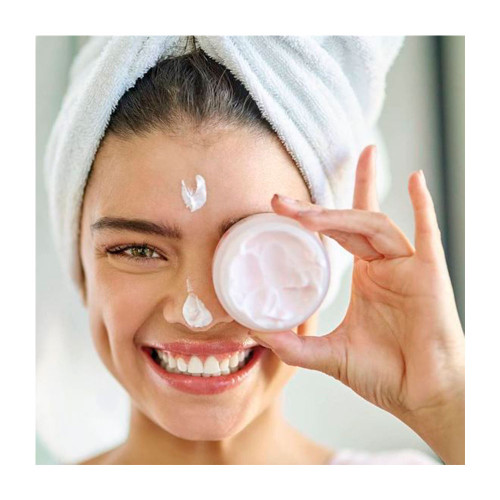Deciphering Your Skin: A Complete Guide to Understanding Different Skin Types
Posted by Dias, Izabela on 9th Nov 2023
To decipher skin is to embark on a journey of self-discovery and care, to learn to listen to what each texture and tone tells us about our internal and external well-being. With each skin type revealing its own unique needs, in this complete guide, you'll learn how to identify your skin type and decipher it.
Normal Skin: Normal skin is well-balanced, with barely visible pores and a smooth texture. It is typically neither overly oily nor dry.
Common Questions Answered: Can normal skin experience skin problems? Yes, even though normal skin is balanced, it can still be affected by factors such as aging and environmental damage. Does normal skin require special care?
Yes, although normal skin does not have significant problems, it still benefits from a consistent skincare routine, including proper cleansing and moisturization.
- Dry Skin: Dry skin is prone to flaking, itching, and a feeling of tightness due to a lack of moisture. It can be caused by environmental factors or genetics.

Common Questions Answered: How to treat dry skin? The use of moisturizers rich in emollients and ingredients like hyaluronic acid can help retain moisture in the skin. Can hot water affect dry skin? Yes, hot water can further dry out the skin, so it's recommended to use lukewarm water when washing your face and body.
- Oily Skin: Oily skin tends to have an excessive shine due to high oil production by the sebaceous glands. It may be prone to acne and enlarged pores.

Common Questions Answered: Is hydration important for oily skin? Yes, oily skin still requires adequate hydration to balance oil production. Opt for lightweight, non-comedogenic moisturizers. Should oily skin avoid facial oils? Not necessarily. Some lightweight, non-comedogenic facial oils can actually help balance oil production and keep the skin healthy.
- Combination Skin: Combination skin is a mix of dry and oily skin, with some areas more prone to dryness, while others tend to be oily, especially in the T-zone.

Common Questions Answered: How to balance combination skin? Use specific products for the dry and oily areas of the skin. For instance, lighter moisturizers for oily areas and richer moisturizers for dry areas. What ingredients are recommended for combination skin? Ingredients like salicylic acid and hyaluronic acid can be beneficial, helping to treat oily and dry areas of the skin, respectively.
- Sensitive Skin: Sensitive skin is prone to irritation, redness, and allergic reactions due to its tendency to react to certain ingredients and chemicals.
Common Questions Answered: How to balance combination skin? Use specific products for the dry and oily areas of the skin. For instance, lighter moisturizers for oily areas and richer moisturizers for dry areas. What ingredients are recommended for combination skin? Ingredients like salicylic acid and hyaluronic acid can be beneficial, helping to treat oily and dry areas of the skin, respectively.
- Sensitive Skin: Sensitive skin is prone to irritation, redness, and allergic reactions due to its tendency to react to certain ingredients and chemicals.

Common Questions Answered: How to identify if I have sensitive skin? Sensitive skin may react negatively to certain products, become red easily, and be prone to rashes and irritations. What ingredients should I avoid in my skincare routine if I have sensitive skin? Steer clear of products with strong fragrances, dyes, and harsh ingredients, opting instead for hypoallergenic and gentle options.
Remember, while each skin type has its peculiarities, all share the need for care and love. Maintain a consistent skincare routine, protect yourself from environmental damage, and nourish your skin with the right products and ingredients to achieve the lasting radiance and health it deserves. Continue to explore and experiment with different products and techniques to find what works best for you and your unique skin. By doing so, you'll be investing not just in your appearance, but also in your overall confidence and well-being.
Keep exploring and experimenting with different products and techniques to find out what works best for you and your unique skin. By doing so, you'll be investing not only in your appearance, but also in your confidence and general well-being.

